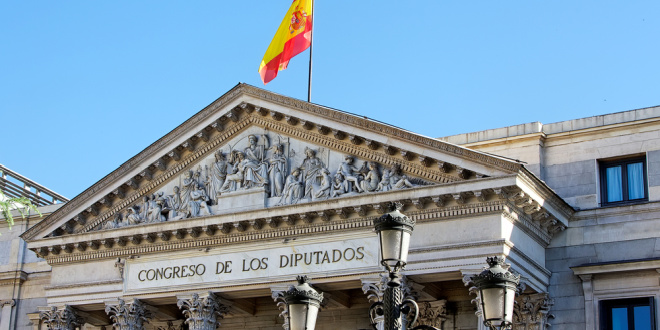The Supreme Court of Spain has ‘partially annulled’ certain articles of the Royal Decree on Advertising, the mandate which imposed federal restrictions on gambling advertising across Spanish media.
The Royal Decree was the headline measure of former Minister of Consumer Affairs, Alberto Garzon, who in 2020 was appointed by Spain’s PSOE-coalition government to oversee the federal reform of Spanish gambling laws.
Drafted in November 2020, the Decree’s restrictions limited advertising for betting houses and games of chance to the early morning hours of 1-to-5 am across all media platforms.
Furthermore, from 2022 onwards, the Decree imposed a blanket ban on all forms of gambling sponsorships in professional sports (excluding state lotteries), with substantial fines for non-compliance.
The Ministry of Consumer Affairs was challenged by the trade bodies of Jdigital, Spain’s online gambling trade association, and the Information Media Association (AMI), who questioned the federal application of the Decree’s measures.
The trade bodies accused the Ministry of Consumer Affairs of bypassing key constitutional procedures as the Decree imposed advertising restrictions through a subordinate regulation rather than a federal law.
The observation was upheld by Supreme Court judges, who deemed that the Ministry of Consumer Affairs had violated principles of Spain’s legal hierarchy to impose Decree rules.
Of further consequence, Jdigital put forward concerns that the Decree had adopted ‘articles without due oversight’ that applied broad restrictions on business freedoms and advertising.
The Supreme Court responded that such measures can only be governed by a specific law with an exact legal determination for business purposes.
Referencing the above criteria, the Supreme Court annulled Decree articles 1-and-3 on the rules of promotional advertising to new customers and article 15 ‘on the prohibition of famous people/athletes in gambling advertising.’
Further annulments were imposed on Article 23, paragraph 1, ‘which establishes a general prohibition on commercial communication of gambling offers through media and information services.’ Final revisions will be needed on articles related to prohibiting advertising on video sharing platforms and social media networks.
The Supreme Court’s intervention is significant as it overturns a previous ruling by the Constitutional Court of Spain which refused to review the complaint from Jdigital and AMI.
Judges deemed that the trade bodies’ concerns were legitimate as certain Royal Decree articles were determined to be guidelines and not regulations, thereby leaving the concerns of Spanish businesses and media stakeholders unaddressed.
The decision sees certain Spanish advertising restrictions overturned, as the ruling will allow media platforms to engage with annulled practices related to promoting gambling.
The Ministry of Consumer Affairs has a right to impose changes to Spanish advertising laws, however it must establish specific laws and unique determinations related to gambling should it move to rectify the Royal Decree on Advertising.
Spain awaits a further revision of gambling laws, following Parliament’s approval of the “Royal Decree on Responsible Gaming Environments“, forming part of the continuing revamp of the regulatory framework established by Alberto Garzon.
New legislation is geared towards establishing Spain with the most rigorous oversight of gambling operations and market conduct in Europe by 2024. The plan includes the implementation of a unified database for gamblers and compulsory documentation of ‘risk profiles’ for individuals younger than 25.
However, as the Directorate General of Spanish Gambling (DGOJ) has opened the mandate to discussion, there’s growing scepticism about the feasibility of meeting the Decree’s technical demands. Spanish officials are challenged with the task of enforcing tight control over gambling proceedings and interactions with consumers.









